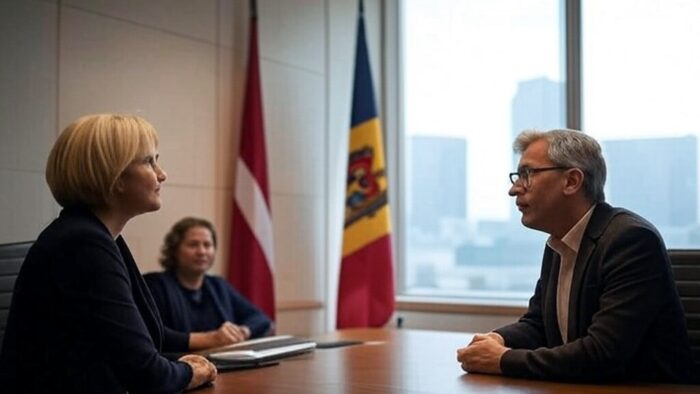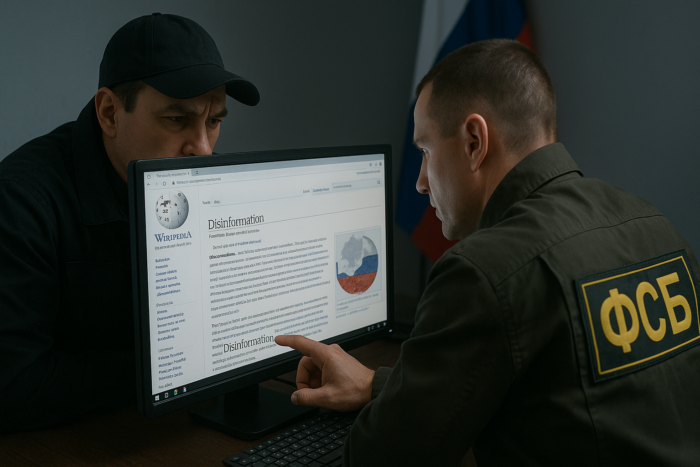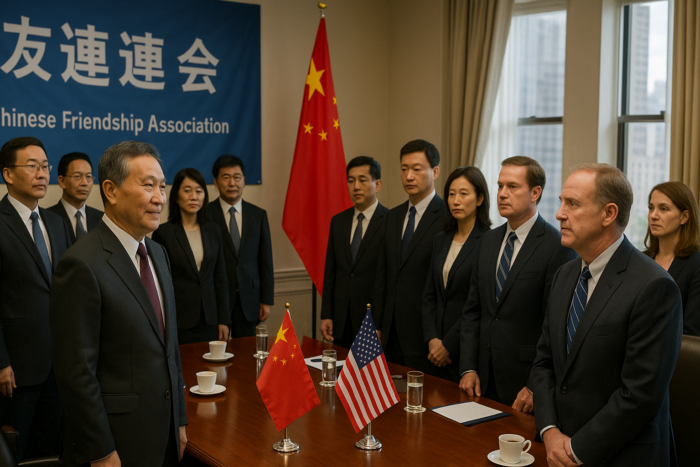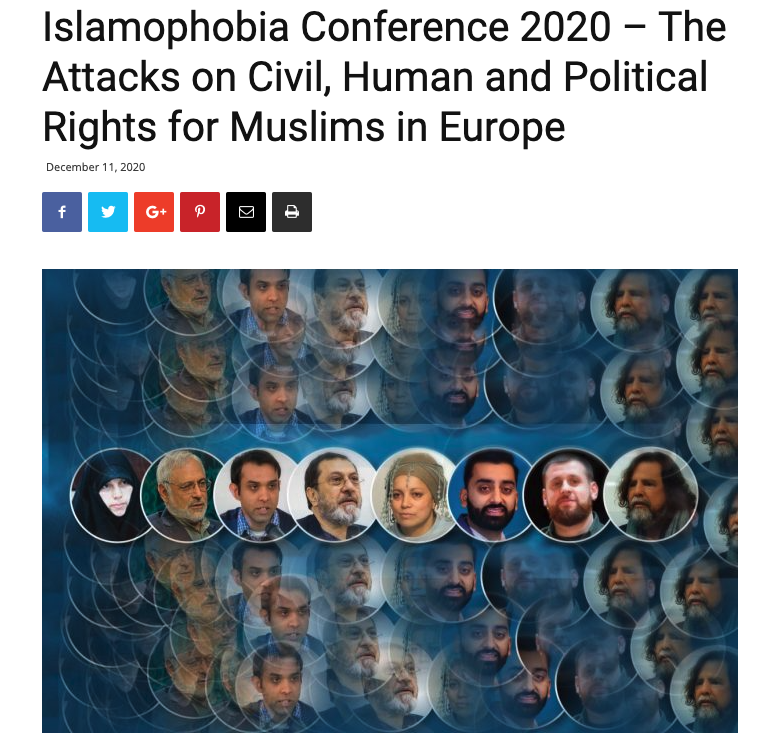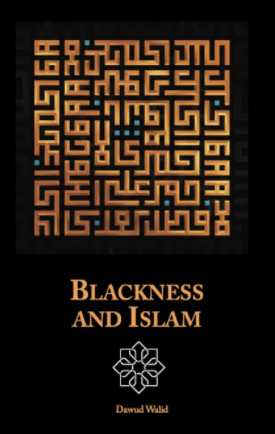Iranian media reported in July on the launch of a book at the offices of the Iranian IQNA news agency in Tehran and Titled “Political Islamophobia at American Policy Institutes: Battling the Power of Islamic Resistance.” The book was authored by the University of Tehran’s Prof. Hakimeh Saghaye-Biria, and published by the UK based Islamic Human Rights Commission (IHRC). According to IHRC’s website, the book analyzes the work of three American think-tanks – RAND Corporation, the Brookings Institute, and the Washington Institute for Near East Policy, which since the Iranian revolution in 1979 have produced highly influential policy recommendations on the region and more broadly on Islam (as religious and political ideas) and Muslims. IHRC describes the book as follows:
Overviewing these three think tanks’ obsession with Islam and Muslims since the Islamic Revolution in Iran in 1979, Saghaye-Biria discusses the implications for Muslim societies of the direction of travel proposed. This thorough backgrounder and analysis raises important and challenging questions for Muslim policy makers, political activists and civil society leaders, as well as providing important critique for those studying Islam and politics in the current era.
Speaking at the event was IHRC Chairman Massoud Shadjareh. The three tank tanks analyzed in the report represent widely varying political orientations:
- RAND Corporation is known for its close work with various U.S. government agencies, international organizations, colleges and universities, and other foundations.
- The Brookings Institute is considered progressive in its political orientation, and its studies are the most widely cited by the media. The annual U.S.-Islamic World Forum, organized by the Brookings Doha Center, had been widely covered by the Global Muslim Brotherhood Daily Watch, bringing together for many years US officials and figures tied to the Global Muslim Brotherhood,
- The Washington Institute for Near East Policy is a pro-Israel think-tank, which was accused in the early 2000s of being part of the U.S. “Israel Lobby”.
According to IQNA, Saghaye-Biria:
- Alleges that the Western world has been facing the Islamic world in two ways – the first being violent confrontation during the colonial period, where the West occupied Islamic countries and killed a large number of Muslims; and the second – a cultural and ideological confrontation, which throughout history had supported the violent confrontation.
- Perceives the think-tanks as those which always plan and set the appropriate method to confront the Muslims in every period, and emphasizes what she grasps as an important role they have been playing – especially after the Iranian revolution – in framing U.S. policies against the Islamic world and Islamic resistance [muqawamah] movements.
- Refers to Islamophobia as a form of racism. She suggests that what she describes as a current global uproar against racism creates a good opportunity to bridge between the [muqawamah] and anti-racism movements around the world. The intellectual leadership of the Islamic world by the Islamic Republic of Iran has strengthened these movements around the world; this strength lies in influencing public opinion by linking Islamic resistance with the other resistance movements.
Saghaye-Biria also identifies the Council on American Islamic Relations (CAIR) as one of the most important US Islamic organizations which she said had taken steps to identify and monitor all types of discrimination against Muslims. CAIR is an important part of the US and Global Muslim Brotherhood, a transnational Islamist influence network also monitored by the GIOR.
Established in 1997, the Islamic Human Rights Commission (IHRC) is a UK based NGO in Special Consultative Status with the Economic and Social Council (ECOSOC) of the United Nations since 2007. Its website says it works with different organizations from Muslim and non-Muslim backgrounds “to campaign for justice for all peoples regardless of their racial, confessional or political background”. The IHRC is considered supportive of the Iranian regime, and for many years has been central to organizing the events of the annual International Quds Day, initiated by the Iranian revolutionary regime. The IHRC’s chairman is Massoud Shadjareh, who is close to the anti-Israel website inminds.com and served as a director in the now inactive Muslim Channel; his wife Arzu Merali is a co-founder, writer, and researcher at the IHRC. Another Muslim Channel director Shabbir Hassanaly, a scholar and web developer, is said by the UK Times to have been “one of a number of individuals and organizations in the UK…whose views and activities are closely aligned to the religious ideology of the Iranian government”. He developed applications to other pro-Iranian outfits like the Iranian TV channel Press TV and AhlulBayt Islamic Mission (AIM). In October 2019, the Times reported that since 2013, the IHRC has also been receiving donations through the UK taxpayer-funded Gift Aid scheme for charitable organizations.
